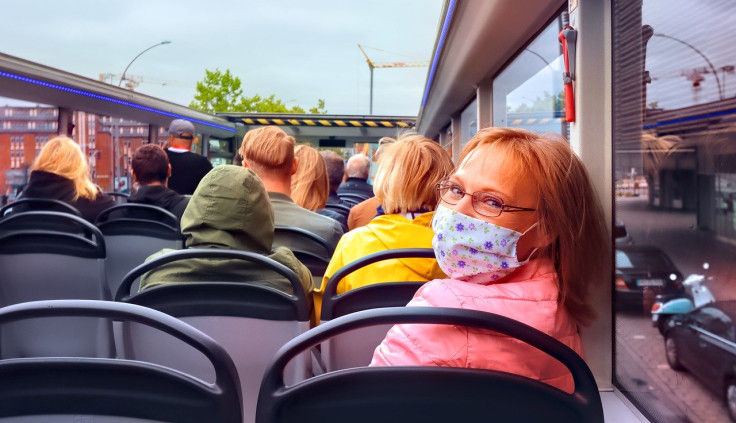Wearing face mask reduces severity of coronavirus symptoms, study indicates
Masks do not only help prevent the spread of coronavirus, but they also protect the wearer from a severe bout of COVID-19 in case someone is infected.
Face masks do not just help prevent the spread of the virus, but it also helps reduce the severity of the symptoms in the event a person is infected.
For a long a time, it was believed that the only purpose of the mask is to prevent coronavirus from spreading to others. This face covering will stop water droplets from a cough or during a conversation from spreading out into the air.
However, a recent study showed that masks are doing more than curbing the spread of the virus. They also provide a degree of protection to the wearer, the Independent repots.
Researchers from China tested the mask's ability to protect the wearer. Using hamsters, they set up these critters in a manner that would simulate a masked environment and a maskless environment.
In adjoining cages, the researchers housed coronavirus-infected animals and healthy ones. Some of the animals were separated by partitions made of surgical masks.
The researchers found that many animals who were behind the mask partitions did not contract the virus. Those that got infected showed that they were less sick compared to hamsters without the mask partitions.
The scientists behind the study stated that the results of their experiment suggest the great degree of importance of wearing a mask. For the wearer, the mask reduces two things: first, the viral dose or the amount of virus that hits the surface of the body, and second, it reduces the viral load, which refers to the amount of virus that a person carries the moment he gets infected.
Infectious disease doctor Monica Gandhi from the University of California in San Francisco stated that people who wear masks will take in a lesser number of coronavirus particles. This benefits the immune system since it will be able to cope with and tackle the virus easily.
Dr Gandhi, whose paper is slated to be published in the Journal of General Internal Medicine cited what happened in two cruise ships as points of reference.
In a case in February, in Japan's Diamond Princess, more than 80 percent of those infected aboard exhibited symptoms before wearing of masks became the norm. On the other hand, on the vessel, which left Argentina in March, they were given surgical masks when somebody on board had a fever. Accordingly, symptomatic cases fell below 20 percent.
Gandhi suggests that in order to "tame" the current health crisis, people must act as if they have been infected. This must be the mindset despite not showing any symptoms of illness.
© Copyright IBTimes 2024. All rights reserved.






